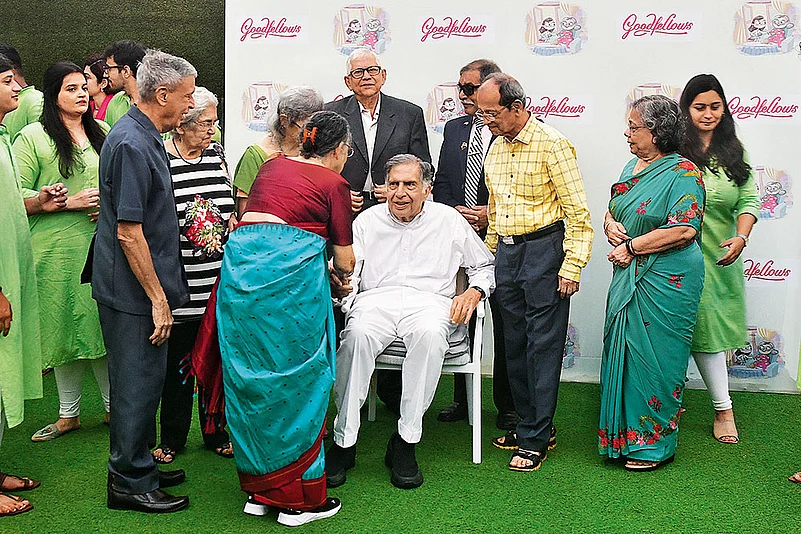Ratan Tata’s recent demise brought to mind a very interesting interview where he spoke about what happiness meant to him and how his idea of happiness evolved over time. What struck me was the clarity with which he thought about the subject, and how he categorised it.
Accumulation Of Wealth
Tata spoke about how he was extremely happy as he accumulated vast wealth. No surprises there. This would make any human being happy. More money never made anyone sad, for sure. But after a while, it failed to evoke the same happiness as before, he said.
End Use Of Money
Money is never an end in itself. Its value lies in what it can purchase. It could be a lifestyle, which is the most evident sign of wealth, or security and peace of mind (in matters of survival and comfort at least). It could even purchase experiences, such as a holiday in Iceland to see the Northern Lights, or a hot air balloon ride in Cappadocia, Turkey.
Tata’s immense wealth gave him the privilege of travelling wherever he wanted to, and purchase whatever he fancied, such as the Dassault Falcon private jet, along with his exotic car collection. He is also said to be a connoisseur of art, and bought exquisite paintings, manuscripts, textiles, arms, armaments, porcelain artefacts, and more such items from across the world.
But after a while, when he was well acquainted with wealth, the appeal faded gradually.
Professional Achievements
Happiness is not only monetary, and it would be a shame if one thinks so.
It was nice to see Tata share about the happiness his work brought to him. At one time, he was the owner of the largest steel factory in Asia; the Tata Steel (formerly the Tata Iron and Steel Company – TISCO) plant in Jamshedpur, Jharkhand. He shared that it brought him happiness, along with operating a large diesel network that controlled around 95 per cent of the supply across India and Africa. My guess is that he was referring to Tata Motors, formerly known as Tata Engineering and Locomotive Company (TELCO).
But professional achievements eventually get surpassed by competitions and corporate battles. One cannot just rest past laurels.
Tata spoke about how he was extremely happy as he accumulated vast wealth. But after a while, the appeal faded
The Joy Of Helping Others
A friend of Tata approached him to sponsor the purchase of 200 wheelchairs for a group of specially-abled children. He obliged instantly. However, this friend insisted that he personally deliver the wheelchairs.
Tata accompanied him and was enchanted. The children were shouting and moving in their chairs with laughter and glee. He likened it to a joyous picnic celebration.
When he was about to leave, a little boy clung tightly to his leg and stared at his face, unwilling to let go. Tata tried to disengage, but the boy would not let go. So he asked the boy if there is anything he could do for him.
With naked gratitude and pure innocence, the child said that he wants Tata’s face etched in his memory so that when they meet in heaven, he would recognise him and express his thanks once more. Tata said he experienced happiness in a very deep and meaningful way.
So does money buy happiness? Of course it does. Money can’t buy contentment, but it can buy happiness.
Happiness Is Transitory
There are two points I want to make. The first is that money enables us to purchase stuff and live a lifestyle that makes us happy. However, the novelty and lustre fade eventually. The holiday gets over. We get accustomed to our comforts. Our fine dining experiences which were so enriching when we did it the first few times, lose their novelty over time.
But that is what happiness is all about. It is not long-lasting, and was never meant to be. But because it is temporary, and can be triggered by multiple factors, this is why it becomes so enjoyable.
Happiness was never meant to be a sustained emotion. That is what I call the myth of happiness.
In this thing called life, we experience a myriad of emotions; love, hate, fear, anxiety, hope, hopelessness, despair, anger, joy, and what not. None are permanent. And that is what makes us human. Unhappiness and happiness is no different.
Buying Happiness For Others
The second point which I want to make is that money enables us to buy happiness for others. And in doing so, we find happiness for ourselves.
When we talk about money buying happiness, it is almost always with reference to spending for ourselves. I would be quite miserable if I could not spend on eating out, visiting the salon, taking a holiday, going for a movie or a play, and so on. But there is also a great deal of happiness when we spend money on others.
A friend recently gifted a young couple (who was very dear to her) a honeymoon as a wedding gift. She picked up the airfare and their stay in the Andaman Islands. Had she not done so, the couple would not have had a honeymoon, because they could not afford it.
I know that it set my friend back by a tidy sum. She did not skimp on the location, but paid for a very swanky resort on the beach. She could have gotten them a much cheaper deal, but wanted the best for them. Never once did she regret it. She said that the joy it gave her in seeing them enjoy what was impossible for them, what was just a remote dream, was unbeatable. It was not that she was fabulously rich. Her lavish gift resulted in her compromising on her own travel, and yet….
There is a neighbour who is very generous with tips when he gets an online delivery. He once generously gave the delivery boy a tip of Rs 500.
I am not joking. It was in the heat of summer, the boy was exhausted, and yet sported such a smile. This elderly gentleman decided to blow his socks off with that tip.
When his daughter reprimanded him, he politely told her that he never tells her how to spend her money, and he is completely financially independent and will decide how to spend his.
He told me later that the joy and complete bafflement in the boy’s eyes is something he cannot forget. He said it made him appreciate his privilege and brought a smile to his face as well.
It is a privilege indeed, to be in a position to deploy your money to buy happiness for others, and in the bargain, enjoy it yourself. It makes you see money in a different light.
I write about our relationship with money. Maybe, it is time to revisit our relationship with happiness too, especially in the light of the festive season that is upon us. Let’s try and make it a time of happiness for others too.
By Larissa Fernand, Behavioural Finance Expert













